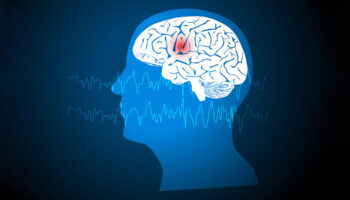Everything changes as we age. Our lifestyles, tastes, preferences and the body, everything changes. The food we used to like throughout our life becomes uneatable and the steps we used to climb with so much ease will become the hardest task to do. We become inactive over the time and start depositing the fat in the body which leads to obesity.
It is no secret that many disorders and health diseases are directly or indirectly connected with obesity. Life-threatening health issues such as cardiovascular disease, liver dysfunctions, diabetes and stroke are directly connected to overweight. There is a significant need to maintain your weight, employing various weight management tips.
Why Do You Need to Manage Weight as You Age?
• Obesity is one of the biggest reasons why people are experiencing various health issues across the world.
• You might have observed the changes that occur in your body as you age because of the reduced physical activities.
• The body metabolism rate will be decreased due to the age-related factors and physical inactivity.
• The muscles mass will be lost, increasing the frailty.
• Even the low-calorie food will cause weight gain, especially if you are in a field that lacks physical activity.
A balanced diet and exercise on a regular basis are the key components in maintaining a good health at any age. When you are young, you may find the right balance between the calories you consume and the calories you burn, with the help of physical activities.
However, for senior citizens, weight management is a difficult task. The body will not support for physical activity and the reduced age-related metabolism rate makes the things worse for you. You have to eat the right food that is low on calories and high on essential nutrients. Here are few weight management tips for seniors for a better aging experience.
Weight Management Tips for Seniors – One universal rule to stick to a healthy diet is avoid packaged, processed and fried foods and artificial sweeteners. Stick to the fresh vegetables, fish, fruits and nuts that are rich in vitamins, nutrients, minerals and proteins.
What Exactly Should Be Your Diet as a Senior?
In short words, eat those nutrient-rich foods that are also packed with vitamins, minerals and contains fewer calories. Here is the list of foods that contain the best diet for weight management in seniors.
1. Fruits and Vegetables:
• Fruits and vegetables that are easily available contain fiber, vitamins and other nutrients that help in weight loss.
• Choose the fruits that are in vibrant colors like leafy greens, beans or peas, carrots, spinach and squash.
• In simple words, make sure that the fruits and vegetables that are in orange, green, red and purple are part of your regular diet.
2. Lean Protein:
• Avail fish such as salmon and tuna are rich in Omega 3 fatty acids which is essential in maintaining good health.
• Cooked beans and egg white are also the great sources of lean meat.
• Chicken, too, is considered as lean meat source but be sure to consult your dietitian before taking it.
3. Whole Grains and Nuts:
• Whole grains are rich in fiber which is essential for better digestion. Brown rice and whole-wheat bread and oatmeal are great sources for fiber.
• Almonds, walnuts, sesame, sunflower and pumpkin seeds, peanuts and cashew are rich in proteins, vitamins and minerals that help you in maintaining good health.
4. Low-Fat Dairy:
• Dairy products have impressive quotients of proteins and minerals. Consume low-fat milk, Greek yogurt and reduced-fat cheese.
• Take skimmed milk as it contains fat content a very minimal level.
Busy lives and added responsibilities will leave you with fewer opportunities to be healthy and watch what you are eating. If you are senior who lives alone and is unable to take care of your diet, consider joining in an assisted living facility as they help you in weight management by offering the best diet plans for seniors.





